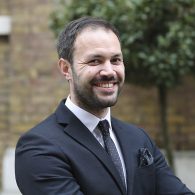COP28 preview with Climate Parliament
December 1, 2023
COP28 runs from 30 November to 12 December 2023. On the eve of the conference, we spoke to Lucy Pearson, Executive Director for the Climate Parliament (a pro bono client of Infinite Global) who is attending in Dubai, about what will be on the agenda for world leaders on the eve of the conference.
What are the COP meetings and why are they important?
Put simply the COP provides much needed focus and transparency on the actions of states to tackle the threat of climate change. They facilitate the international cooperation needed to make tangible change and deliver a just transition to a safe low carbon world for future generations – not least in terms of policy and investment commitments.
In 1994 the United Nations Framework Convention on Climate Change entered into force, and was ratified by 198 countries. The ultimate aim of this is to prevent dangerous human interference with our climate system.
The COP (Conference of the Parties to the Convention) is the supreme decision making body of the Convention.
All states that are party to the Convention are represented and conferences, which began in 1995, are held annually (unless otherwise agreed). The COP presidency rotates, with Dubai hosting this year.
A critical development since the beginning of COP and the ratification of the Convention was the signing of the Paris Agreement in 2015. This is the legally binding treaty which commits states to limiting global warming to “well below” 2 C above pre industrial levels, and pursuing efforts to limit it to 1.5 C – which the science warns us is the critical tipping point.
The Paris Agreement also included the commitment to increase the ambition of climate ambition every five years, with COP26, held in the UK, securing progress to focus much more acutely on the 1.5 C target.
The 2025 milestone now looms large.
For those not on the ground at Dubai, what would you say are the key things to look out for?
Likely the most important thing happening this year is the conclusion of the Global Stocktake. Ahead of that five year cycle point of the Paris Agreement in 2025 this will be the first time that the states and stakeholders take an in depth look at the specific delivery of climate change mitigation measures. This has been called the “moment of truth” by some. It’s quite clear that not enough has been achieved globally.
The stocktake will go a long way to revealing what the specific gaps are, and will help coordinate efforts to bridge those gaps.
Progress on the Loss and Damage Fund, first agreed at COP27, is also a major step forward. It was a major milestone on day one in Dubai to have unlocked $300m from wealthy nations in attendance. Loss and damage is essential about wealthy nations providing the funding required to mitigate the dangerous effects of man made climate change on vulnerable nations – particularly those at risk from factors such as rising sea levels – who themselves have had a much smaller impact in terms of emissions. Let’s hope it can be implemented effectively. More widely, the OECD has projected that developing nations will need around $2.4 trillion each year between 2026 and 2030 to fund required climate investments and secure a just transition – so the $300m for loss and damage is very much a starting point.
PR perspective
The largest spikes in media stories mentioning the term 'greenwashing' in recent years have come during COP26 and COP27. Expect the scrutiny of both companies and policy makers to ratchet up in the coming weeks.
Can you give us a brief overview of Climate Parliament and your mission?
The Climate Parliament is the world’s main international parliamentary network focused on climate and renewable energy.
It is ultimately politicians who will decide whether we make the necessary changes in policy and budgets in time to prevent a global climate breakdown. Only they have the mandate to transform energy systems, strengthen forest protection, and implement other key reforms. If so, few things are more important than informing and mobilising politicians on these issues.
Collaborating with the European Commission and other partners, the Climate Parliament has long experience of working with national and regional legislators on the climate agenda.
As our planet races towards its net zero deadline, the Climate Parliament is urgently coalescing governments, industry, and other stakeholders to accelerate the transition to large-scale renewable energy, sustainable transport, and energy access through a coordinated international effort to create the infrastructure to power our future world.
And, so, why are the COP events important for Climate Parliament in particular? And what are you planning this year?
During COP 28, the Climate Parliament, the European Climate Foundation (ECF)and the Climate Compatible Growth (CCG) research programme will convene a global meeting of parliamentary climate champions focusing on the Global Stocktake.
The discussions will focus on understanding climate threats, mitigation and adaptation efforts towards achieving the goals defined in the Paris Agreement, as well as green grids as a key requirement for climate mitigation and on supply chain challenges to the expansion of this crucial infrastructure.
We will also be working closely as part of the Green Grids Initiative Secretariat on its wider programme, including ministerial roundtables and panel events with the likes of Hitachi and SSE.
Do you think grids have been given the ‘airtime’ they really need (both in the media and within policymaking)?
Not previously, but there is far greater recognition now of the vital role grids play in enabling the energy transition. It’s night and day from 5 years ago and huge leaps and bounds have been made in the last year alone. There will be high level presidency event on grids this year, as well as dozens of other grids events during COP.
Since the Green Grids Initiative was first announced jointly by the Prime Ministers of the UK and India at COP26, this issue has increasingly become central to public and political debate. This is important. In many ways grids will be defining issue of the clean energy transition and rapid progress needs to be made – which is why it’s at the core of our CEO and Investor Council deliberations.
Annual investment in grids needs to more than double by 2030 to more than $600bn, and reach over $1 trillion by 2040 for the 1.5 C pathway.
PR perspective
An essential component of grid infrastructure is High Voltage Direct Current (HVDC) transmission. UK media reporting on this technology has been on an upward trajectory, with July this year seeing a huge surge in interest amid concerns over supply chain capacity as well as a landmark deal for Hitachi which was selected as the preferred bidder for the UK's longest HVDC transmission link.
What role do you think the private sector has to play in the energy transition and how far is greenwashing a problem for COPs?
Greenwashing is still a major problem. This was brought into sharp relief last year by the more than 600 fossil fuel lobbyists at COP27, and the suggestions in the press this year regarding Dubai looking to use the negotiations to broker new oil and gas deals.
But, the private sector has a massive role to play in achieving the energy transition.
BloombergNEF estimates that $21.4 trillion needs to be invested in electricity grids by 2050 to support a net-zero trajectory for the world. At least as much will be needed to build the large-scale solar and wind installations that, combined with small-scale solar, can power those grids with renewable energy. To ensure reliable supply, continental-scale grids need to connect everyone to the most energy-rich locations, such as sunny deserts and windy seas, and to different time zones.
Most of this investment will have to come from the private sector.
But private investors will only deliver low-cost capital to build green grids if governments create a secure legislative and regulatory framework for investment.
That is why our CEO and Investor Council has convened the Green Grids Investment Dialogue, where we hope to have constructive, actionable conversations between governments and business which will accelerate the delivery of clean energy projects.
Linked to this, the fact that this COP is being held in the UAE has been met with some criticism from campaigners. Do you think that’s short sighted given the UAE’s investments in renewables?
It is of course concerning and problematic that there have been suggestions that the UAE is looking to use its COP presidency to explore new fossil fuel deals. It should be said that such claims have been denied by Sultan al Jabar.
The Gulf region includes five of the top ten oil-producing countries and is responsible for 27% of world production.
However it also holds huge scope and potential to be a powerhouse for clean energy.
With its vast deserts and year-round sunshine it really is a prime location for the extensive solar farms necessary for humanity’s growing energy needs. The world’s largest single site solar farm is already located in Abu Dhabi.
At the same time, being situated between Europe and Asia, the region could act as a bridge linking a global network of Green Grids; desert solar could be delivered to Europe by day, with European and North African wind energy transmitted eastwards during the night. This mutually beneficial exchange of energy could be replicated around the world – and is exactly the kind of large scale, intercontinental grid infrastructure and clean energy superhighway that we are championing at the Climate Parliament and Green Grids Initiative.
What role do you think the press plays in addressing these kinds of concerns?
A fundamentally important role. This is why we recently held our media briefing (kindly supported by Infinite Global) to discuss with international media the issue of grids infrastructure and to equip them going into COP28 with the key questions to be asking of legislators and the private sector on this topic.
Independent journalism is key to the energy transition and broader climate mission: it helps to hold power to account, shines a spotlight on solutions and trailblazers, builds awareness and momentum, and combats potentially harmful misinformation.
PR perspective
Companies undertaking decarbonisation programmes face a complex communications challenge, particularly when it comes to the risk of being tarred with the brush of greenwashing. Any claims made must be justifiable, while reputations can be broken if actions don't reflect words (the reverse is, almost, just as true - with visibility and transparency critical factors).
How can we help?
Get in touch with our team




